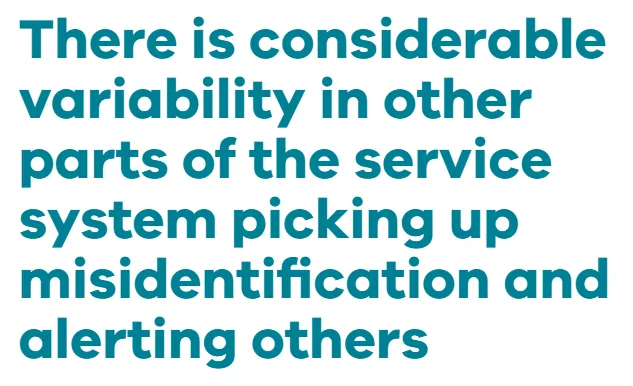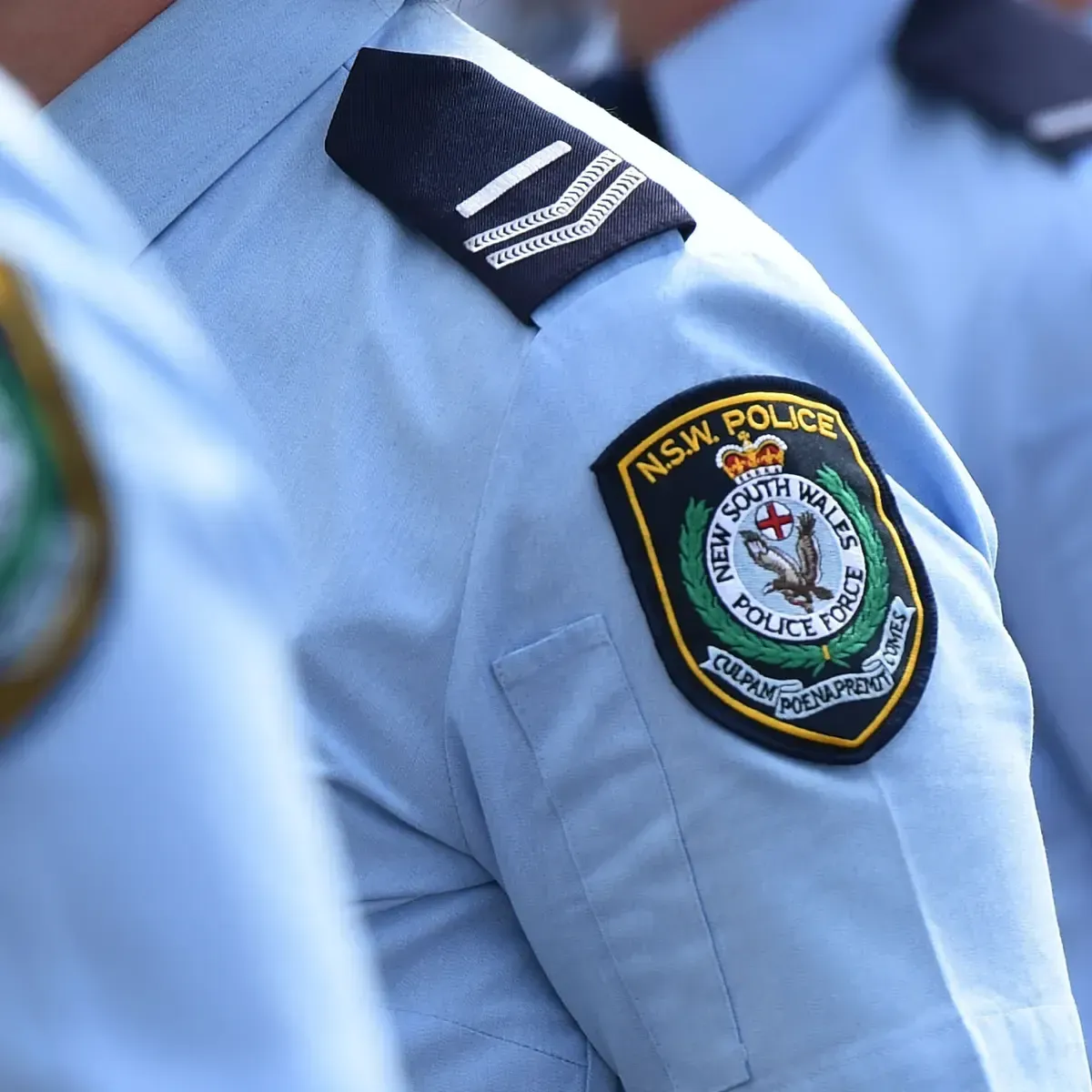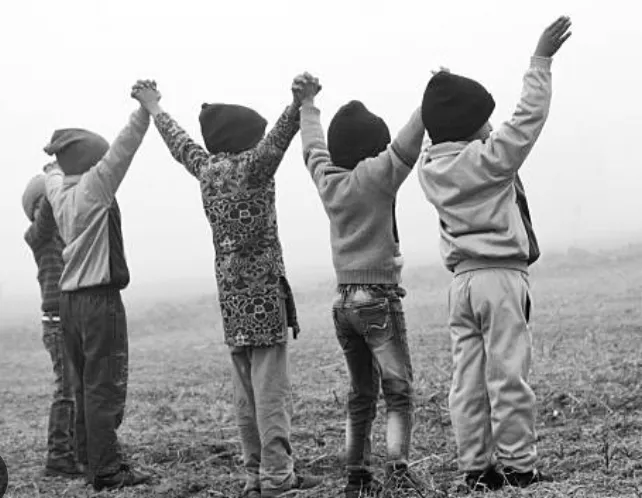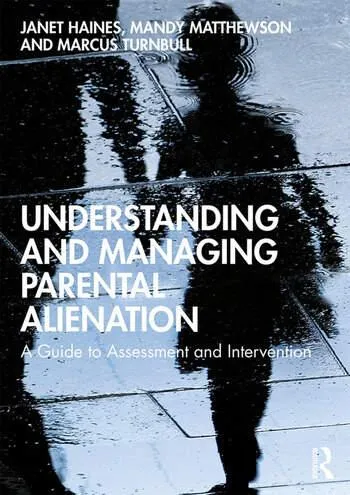
INFORMATION AND SUPPORT
Who to call for help if you or someone you know is experiencing this form of family violence, there are anumber of experienced organisations that offer support including:
- Eeny Meeny Miney Mo Foundation emmm.org.au
- 1800 RESPECT 1800 737 732 or 1800respect.org.au
- Insight Exchange insightexchange.net
- Safe Steps 1800 015 188 or safesteps.org.au
- Lifeline 13 11 14 or lifeline.org.au
- Kids Helpline 1800 55 1800 or kidshelpline.com.au
- Full Stop Australia fullstop.org.au
Family Violence False Allegations
This is an article about misidentification in the family violence system. It discusses the prevalence of misidentification and the challenges that misidentified victims face. It also highlights the importance of legal representation for misidentified victims. Some of the key points from this article are that misidentification can have serious consequences for victims, such as the loss of child custody or the inability to get a job. Additionally, the article notes that there is a lack of consistency in how misidentification is handled by the courts.
Click here.
Family Violence NSW Police Checklist
This article is about parental alienation. It discusses what parental alienation is and how it can impact families. The article also highlights research being done on parental alienation at the University of Tasmania. Some of the important points from this article are that parental alienation is a relatively new area of research in Australia and that it can have a significant impact on the mental health of targeted parents.
Click here.
Coercive Control checklist from NSW Police
This is a checklist for coercive control, a form of domestic abuse that can include isolation, deprivation, demeaning behaviour, surveillance, threats to harm, and actual harm. The checklist asks questions about your partner's behaviour and your relationship, and it can be used to assess the risk of harm. If you answer yes to any of the questions, it is important to seek help from a trusted friend, family member, or professional.
Click here.
When Children Lie – Coercive Control in Families Experiencing Post Separation Abuse
This article is about coercive control in families experiencing post-separation abuse. It discusses the impact of coercive control on children, including how it can lead to children lying. The author argues that coercive control is often perpetrated by mothers as well as fathers. She also argues that the judicial system needs to be more aware of coercive control so that it can better protect children.
Click here.
Homecoming: The Treatment of Splitting In Alienated Children
This article is about parental alienation after divorce. It discusses what it is and how it can be treated. It also emphasizes the importance of understanding the child’s perspective. Some of the key points are that parental alienation is a serious problem that can have lasting negative effects on the child and that it is important to intervene early.
Click here.
Protecting the Abused Parent and Child: Working With Relational Trauma in Divorce and Separation
Karen Woodall, a psychotherapist, researcher, writer, and trainer, has written an article titled “Protecting the Abused Parent and Child: Working With Relational Trauma in Divorce and Separation”. The article discusses the importance of protecting the abused parent and child dyad in circumstances where a child is being manipulated and drawn into the adult dynamics of divorce. The article highlights the concept of relational trauma in divorce and separation and the way in which it manifests when a child becomes hyper-aligned with one parent and rejecting of the other.
The article also discusses the use of a child protection pathway to assist with this process, which is readily translatable into languages other than English and which fits with the statutory responsibilities of social workers to ensure that abused children are protected from harm.
Click here.
Understanding and Managing Parental Alienation
A Guide to Assessment and Intervention By Janet Haines, Mandy Matthewson, Marcus Turnbull.
In Understanding and Managing Parental Alienation: A Guide to Assessment and Intervention, Janet Haines, Mandy Matthewson and Marcus Turnbull offer a comprehensive analysis of contemporary understanding of parental alienation. Grounded in recent scientific advances, this is the first book of its kind providing resources on how to identify parental alienation and a guide to evidence-based intervention.
Parental alienation is a process in which one parent manipulates their child to negatively perceive and reject the other parent. Recognising this phenomenon and knowing when to intervene is often the biggest challenge faced by practitioners and this book provides a guide to this process. Divided into six parts, it examines what parental alienation is and how it is caused, how it affects each family member as a mental health concern and form of violence, and how to assess, identify and intervene successfully from a legal and therapy standpoint. Taking on a gender-neutral approach, the book is filled with contemporary case examples from male and female perspectives, cutting-edge research, practitioner-client dialogues, and practitioners’ reflections to show the difficult realities of parental alienation.
Practical and accessible, this is an essential resource for mental health professionals working with families experiencing parental alienation, as well as postgraduate students of clinical psychology, counselling, family therapy, social work, and child and family psychology. This book will also be of immense interest to family lawyers and mediators due to its multidisciplinary approach.
[Source: Routledge]
“Parental Alienation Behaviors and Coercive: The One and The Same”
The use of children as weapons has long been documents by Domestic Violence (DV) researchers as a strategy of abuse by coercively controlling individuals. The impact of this weaponization on children has been the focus of scientists who study parental alienation, who consequently have referred to coercively controlling behaviors as “Parent Alienating Behaviors” because of the focus on the child rather than the perpetrator of abuse. Despite these two different labels for the same sets of behaviors, there has been considerable resistance among detractors of parental alienation in recognizing parental alienating behavior, preferring instead to call coercively controlling abuse in the cases as “protective parenting”, particularly when the “protective parent” is a mother. In this presentation, Dr Harman will review the scientific evidence documenting the weaponization of children across both fields of study, highlight how they are one and the same phenomenon, and explore how a biased gender paradigm about violence and the denial and misrepresentation of science has created an unnecessary and harmful divide in this field of work.
Jennifer J. Harman, PhD, received her doctorate in social psychology from the University of Connecticut in 2005. She is an associate professor of psychology at Colorado State University and has published over a dozen peer-reviewed articles and scientific studies on the topic of parental alienation and domestic violence. She is a renowned expert on the topic of parental alienation, conducts trainings on the topic for legal and mental health professionals, and has provided expert witness testimony in many family and criminal court cases across the U.S. She currently serves on the board of directors for the parental alienation study group, is the President of the International Counsel on Shared Parenting, and is on the editorial Board of the peer-review scientific journal, Personal Relationships.
Resources and Reading List
- Traumatic Splitting & Relational Trauma
- Fisher, J. (2017) Healing the fragmented selves of trauma survivors. Routledge.
- Ogden, P. & Fisher, J. (2015). Sensorimotor psychotherapy: Interventions for trauma and attachment. W.W. Norton & Company.
- Siegel, D. (2011). Mindsight: The new science of personal transformation. Oneworld publications.
- Van der Kolk. B. (2015). The body keeps the score: Mind, brain and body in the transformation of trauma. Penguin.
Childhood Relational Trauma
- UK Trauma Council. Childhood trauma and the brain.
https://uktraumacouncil.org/resources/childhood-trauma-and-the-brain
- UK Trauma Council. How latent vulnerability plays out over a child’s life.
https://uktraumacouncil.org/resource/how-latent-vulnerability-plays-out-over-a-childs-life
- Jacob Ham. Understanding trauma: Learning brain vs survival brain
https://www.youtube.com/watch?v=KoqaUANGvpA&t=18s
- Wolynn M. (2016). It didn't start with you: How inherited family trauma shapes who we are and how to end the cycle. Viking.
- Fromm, M. G. (2012). Lost in transmission: Studies of trauma across generations. Karnac Books.
- Firestone, R., Firestone, L. & Catlett, J. (2012). The self under siege: A therapeutic model for differentiation. Routledge.
Psychoanalytic Understanding
- Ehrlich, R. (2021). Winnicott’s idea of the false self: Theory as autobiography. Journal of the American Psychoanalytic Association, 69(1), 75–108.
https://journals.sagepub.com/doi/10.1177/00030651211001461.
- Etherington, L. (2023). Melanie Klein and object relations theory. Simple Psychology.
https://www.simplypsychology.org/melanie-klein.html
- Fishman, H. C. (1993). Intensive structural therapy: Treating families in their social context. Basic Books.
- Schwartz, R. C., & Sweezy, M. (2020). Internal family systems therapy (2nd ed.). The Guilford Press.
- Attachment & Trauma Network. Therapeutic parenting.
QUESTIONS?
Contact media@childcoercivecontrol.org for more information
© Copyright 2023 Parental Alienation Advocacy Group.
This website may contain links to other websites. These links are provided for your convenience only and do not imply any endorsement of the content on those websites.







